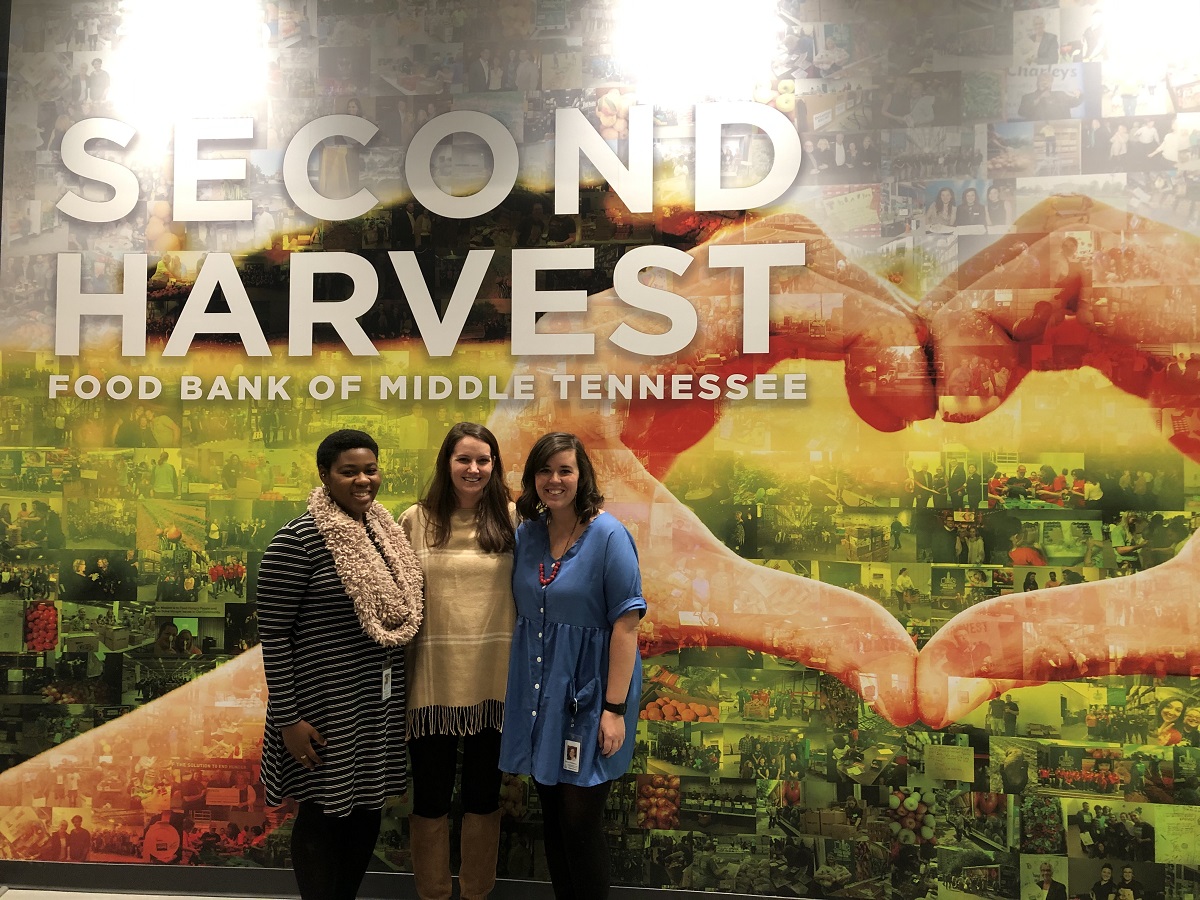Our Commitment to Racial Equity
We cannot end hunger without addressing its root causes, including structural racism. Our goal of creating a food-secure world is guided by our commitment to advancing racial equity and building a more just world. With awareness of our current and past deficiencies, we center equity and justice in our work by designing and implementing equitable programs, sharing organizational and programmatic learning and best practices with the anti-hunger movement, and examining and improving our organization's culture and policies.
Structural racism is a root cause of hunger and poverty.
The evidence from academic research and personal experience is clear: in our world today, race, wealth, and health are inextricably linked. In the United States, families of color are at least twice as likely to experience food insecurity when compared to white families. Black and Indigenous families are three times as likely to experience food insecurity. Around the world, the international development sector concentrates decision-making in the hands of highly-specialized experts from wealthy countries, replicating racist, paternalistic and colonialist power imbalances.
To eliminate these disparities we must take on the root causes of inequities, not just their manifestation. Applying a racial equity lens to anti-hunger work, one that centers communities of color, is integral to ending hunger. In practice, this looks like:
Eliminating policies and practices that cause or perpetuate differential outcomes by race
Supporting policies and programs that produce equitable results
Ensuring that people directly affected by hunger and poverty are creators of the solutions
The Hunger Center develops, inspires, and connects leaders – especially leaders of color and those who have experienced hunger and poverty – who can recognize the underlying problems and use their skills and first-hand knowledge to make effective change.
 When my family was denied SNAP benefits, I knew I wanted to do something to ensure no parent ever had to look into their children's eyes and wonder how they would feed them. Being a Zero Hunger Intern has positioned me to work alongside a fantastic organization and focus on SNAP Outreach. I have assisted nearly 80 families and individuals through the SNAP application process. This opportunity has made my brief moments of financial hardship worth it because my determination to assure families receive the basic necessity of food security is coming to fruition.Eboni Bright, Dietetics and Nutrition student at Kansas State University, 2021 Zero Hunger Intern
When my family was denied SNAP benefits, I knew I wanted to do something to ensure no parent ever had to look into their children's eyes and wonder how they would feed them. Being a Zero Hunger Intern has positioned me to work alongside a fantastic organization and focus on SNAP Outreach. I have assisted nearly 80 families and individuals through the SNAP application process. This opportunity has made my brief moments of financial hardship worth it because my determination to assure families receive the basic necessity of food security is coming to fruition.Eboni Bright, Dietetics and Nutrition student at Kansas State University, 2021 Zero Hunger Intern
Learning and developing
Exploring equity, power, and privilege is built into our leadership development curriculum. Our leaders learn to apply a racial equity lens to their anti-hunger work during their fellowships and internships and beyond.
The Hunger Center organizes group learning events for fellows and interns. Topics at past learning events have included:
- Racial Equity: Awareness and Analysis
- Systems of Oppression in International Development: Why the System Has to Shift Power
- Power and Your Work Plan
- Amplifying Voices with Lived Experience of Poverty
- Bread for the World's Racial Wealth Gap Simulation
Sharing Best Practices
Working with host organizations across the U.S. and around the world, our fellows and interns develop, document, implement, and evaluate projects that reduce food insecurity and poverty and build racial equity. Fellows and interns share what they've learned in reports, briefings, blog posts, and more, and influence how our partners are advancing in their racial equity journeys.
Below are just a few of the resources created by our fellows and interns:
Decolonizing Advocacy
Video / 2019-2021Mobilizing Local Voices for Risk Communication and Program Success
Video / 2019-2021Food Security in the Midwest: Disparities for Oglala Lakota Nation of South Dakota
Video / 2021 The Emerson Fellows had a tremendous impact on our organization. They looked at our programs with fresh eyes and with an emphasis on equity. They suggested clear ways to improve our programs that we will work to implement.Second Harvest Food Bank of Middle Tennessee, Emerson Fellow Supervisor
The Emerson Fellows had a tremendous impact on our organization. They looked at our programs with fresh eyes and with an emphasis on equity. They suggested clear ways to improve our programs that we will work to implement.Second Harvest Food Bank of Middle Tennessee, Emerson Fellow Supervisor
Designing and Implementing Equitable Programs
We are committed to an intentional, ongoing examination of our programs to ensure we are always striving to be more equitable.
- The U.S. anti-hunger movement must reflect people and communities who disproportionately experience food insecurity. Since 2008, the Bill Emerson National Hunger Fellowship has had a stated programmatic commitment to anti-oppression and racial justice. This belief has developed into a core principle of the Hunger Center, and today is reflected in all its programs and activities.
- Costs of living vary widely from one city or state to the next. We've adopted a data-driven methodology to determine our Hunger Fellows' financial packages, increasing the average financial package to $45,736 for U.S.-based Emerson Fellows.
- Pay differentials between expatriate and national staff perpetuate inequitable power dynamics in international development. Leland Fellows' financial packages are adjusted to reflect the cost of living in the country where they work.
- Racism intersects with other forms of oppression in complicated ways. Our program participants are asked to consider how discrimination along lines of class, gender, LGBTQ+ identity, immigration status, nationality, and other identities reacts in combination with inequality produced by racism.
- We have increased — and continue to explore how we can further increase — the racial and socioeconomic diversity of our cohorts of Emerson and Leland Hunger Fellows and serve as a pipeline of diverse talent for anti-hunger organizations.
In 2018, we launched the Zero Hunger Internship to create more opportunities for college students of color and those with lived experience of hunger and poverty to be able to participate in Washington, D.C.-based anti-hunger policy internships. Nearly 50 college students and recent graduates have participated in the 10-week summer internship program, with average stipend now at $6,100.
Becoming a More Equitable Organization
We review our organization’s policies and practices on an ongoing basis to create a more diverse, equitable, and inclusive organization. Here are a few examples of some of the changes we have made over time:
- We strive to have our leadership ranks hold a critical mass of people of color. People of color currently comprise 33% of board seats and 45% of staff positions.
- Our leadership conducts annual audits of staff compensation to prevent salary disparities across race, gender, or other identities.
- We have increased transparency around compensation by developing a compensation philosophy and career architecture that includes salary ranges and clear expectations for advancement. We share an analysis of our compensation practices with all staff annually, and all starting salaries are included in job postings.
- We have removed or reduced formal education requirements from job descriptions.
- We have cultivated a learning environment around racism and white supremacy culture through ongoing racial equity and implicit bias trainings for staff, sharing online resources and articles on racial equity, and participating in events such as the Food Solutions New England’s Racial Equity Challenge.
- Staff members participate in several industry-wide DEI working groups to enhance their understanding of racial equity in the context of domestic and global hunger.
- We created a Code of Ethics for Hunger Center employees and fellows which highlights the Hunger Center’s core beliefs and values, including racial and gender equity.
- We secured a robust confidential assistance program to support overall well-being of fellows, interns, and staff.
- We offer a 401k with employer match to all employees, and have eliminated the vesting and waiting periods so new employees are eligible to participate upon hire.
Looking Forward
Building racial equity is a long-term and ongoing project.
We recognize that the forces of structural racism that drive hunger and poverty cannot be eliminated overnight: it is a journey of many steps. Above, we've shared some of the steps we've already taken, while recognizing that there are still more to go. As we continue our journey, we know that often we will be the learners, and at other times we may be the teachers. We hope that you will join us in our continuing journey towards an equitable and hunger-free future for all.
Collective Impact for Equity
We are teaming up with the Alliance to End Hunger to launch We Hunger for Racial Equity, a collective impact model centered on building community solutions and advocating for public policies that prioritize racial equity.
Together, our organizations serve as a convener of more than 100 anti-hunger organizations, faith-based institutions, corporations, universities, and foundations. As a collective voice within the anti-hunger community, we can bring national and community partners to the table to develop best diversity, equity, and inclusions practices. We Hunger for Racial Equity is committed and actively working to end structural racism, invest in institutional efforts to increase diverse representation and create inclusive, equitable environments, and advance racially equitable public policies that ensure access to nutritious, affordable, and culturally appropriate food for all.
